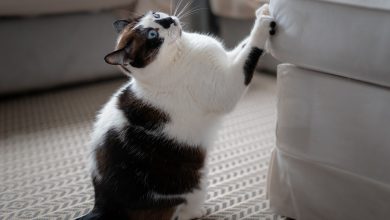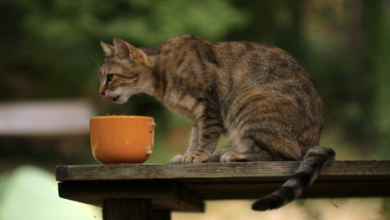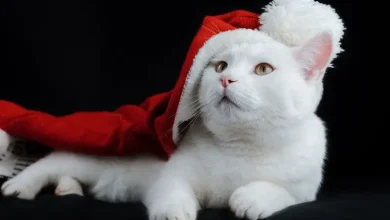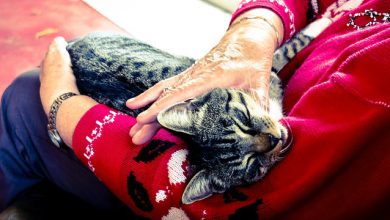
So, why does my cat lick my face? Cats are known for their curious and loving behavior, and they often show their affection for their owners in unique ways. One such behavior that may seem odd to some cat owners is face licking. If you’re wondering why your cat licks your face, there are a few reasons why they might exhibit this behavior.
Understanding Your Cat’s Behavior
Before diving into the reasons behind why your cat licks your face, it is important to understand the social bond that cats and humans share. Unlike dogs, who have been selectively bred over centuries to be social animals and work alongside humans, cats are more independent and show affection in subtle ways. They may not be as overt in their display of emotions, but they still crave social interaction with their owners.
Cats have been domesticated for thousands of years and have adapted to living with humans. They have learned to read human emotions and respond to them accordingly. For example, if their owner is feeling sad, a cat may approach them and offer comfort with gentle purring or cuddles. In this way, cats have become attuned to their owner’s needs and have developed a strong bond with them.
Cats are known for their scent communication, and they use this to connect with their owners in various ways. They may rub their heads against their owner’s legs or furniture to mark their territory and leave their scent. This behavior is a sign of affection and a way for cats to claim their space and make it feel like home.
The Social Bond Between Cats and Humans
Cats view their owners as a member of their “pride” and often show their love and affection through grooming rituals and playful behavior. They use their scent to mark their territory and communicate with other cats, and they may do the same with their owner. Face licking can be an extension of this social behavior, and cats may do it as a way to greet their owner or show affection.
It’s important to note that not all cats will lick their owner’s face. Some cats may prefer to show their affection in other ways, such as by sitting on their owner’s lap or following them around the house. Each cat has its own unique personality and way of expressing their love.
The Role of Scent in Cat Communication
Cats have scent glands located on their head, around their mouth, and on their paws. When a cat licks your face, they are transferring their scent to you, claiming you as a part of their territory and displaying their affection. Your cat may also be trying to pick up your scent, which can provide them comfort when you are not around or if they are feeling anxious.
Similarly, when a cat rubs their head against your leg or furniture, they are leaving their scent behind as a way to mark their territory and show their affection. This behavior is known as bunting, and it is a common way for cats to communicate with their owners and other cats.
How Cats Show Affection
Cats have many subtle ways of showing their affection for their owners, and face licking is just one of them. Your cat may rub their head on your leg, knead their paws on your lap, or even follow you around the house. While some cat owners may find face licking to be uncomfortable or unwanted, it is important to recognize that it is a sign of affection from your furry friend.
Other ways that cats may show their affection include purring, meowing, and bringing their owner gifts such as toys or small animals. Each cat has its own unique way of expressing their love, and it is important to pay attention to their behavior to understand what they are trying to communicate.
Overall, understanding your cat’s behavior is key to building a strong bond with them. By recognizing the subtle ways that cats show their affection, you can deepen your relationship with your furry friend and create a happy and healthy home for both of you.
Reasons Why Cats Lick Faces
While face licking is a common behavior exhibited by cats, there are several reasons why your feline friend may be doing it. In this article, we will explore the various reasons why cats lick faces and what it means for their behavior.
Grooming and Hygiene
Cats are naturally clean animals and spend a significant portion of their day grooming themselves. By licking your face, your cat may be trying to help you with your grooming routine. They may be trying to clean your face, similar to how they groom themselves and other cats. This behavior is common in cats that are closely bonded with their owners and view them as part of their social group.
It is important to note that while cats may have good intentions when licking your face, their tongues can also transfer bacteria and other germs. If you have an open wound or are immunocompromised, it is best to avoid allowing your cat to lick your face.
Marking Territory
Cats have scent glands located around their mouth, and they use this area to mark their territory. When a cat licks your face, they are leaving their scent on you, claiming you as their own. This behavior is common in cats that are highly territorial and view their owners as part of their territory.
If you notice that your cat is excessively marking you or your belongings, it may be a sign of anxiety or stress. In these cases, it is important to provide your cat with a safe and comfortable environment and consult with a veterinarian if the behavior persists.
Seeking Attention and Comfort
Cats are social creatures, and they need love and attention from their owners. By licking your face, your cat may be trying to get your attention or seeking comfort from you. They may view your face as a comforting presence and seek it out when they are feeling anxious or stressed.
If your cat is licking your face excessively or aggressively, it may be a sign that they are feeling neglected or anxious. It is important to provide your cat with plenty of attention and affection, as well as a safe and comfortable environment to reduce stress and anxiety.
Taste and Texture
Cats have a keen sense of taste and texture, and they may find the texture of your skin or the taste of your sweat appealing. This behavior is common in cats that are closely bonded with their owners and view them as part of their social group.
It is important to note that face licking can become a compulsive behavior in some cats, and if it is excessive or causing issues such as skin irritation, you should consult a veterinarian. Your veterinarian can help determine the underlying cause of the behavior and provide guidance on how to manage it.
In conclusion, cats may lick faces for a variety of reasons, including grooming and hygiene, marking territory, seeking attention and comfort, and taste and texture. While this behavior is generally harmless, it is important to monitor your cat’s behavior and consult with a veterinarian if it becomes excessive or problematic.
Is Face Licking Safe and Healthy?
While face licking can be a sign of affection from your cat, it is important to consider the potential risks and health concerns associated with the behavior.
Potential Allergies and Irritations
Cats have a variety of bacteria in their mouths, and if you have a weakened immune system or are allergic to cats, face licking can cause potential health issues. In addition, excessive face licking may cause skin irritation or infection on the face and lips.
Bacterial Concerns
In addition to potential allergies and irritations, face licking can transfer bacteria from your cat’s mouth to your face. While this is not a significant concern for most people, it is important to be mindful of this risk if you have a compromised immune system, are pregnant, or have an open wound on your face.
When to Consult a Veterinarian
If your cat’s face licking behavior becomes excessive or is causing issues such as skin irritation, it is important to consult a veterinarian. Your veterinarian can rule out any underlying health concerns and help you manage your cat’s behavior.
How to Manage Your Cat’s Face Licking
If you find your cat’s face licking behavior to be uncomfortable or unwanted, there are ways to manage the behavior.
Redirecting the Behavior
You can redirect your cat’s attention to a favorite toy or treat when they start to exhibit face licking behavior. Consistently rewarding your cat’s positive behavior can help discourage the unwanted action.
Providing Alternative Forms of Affection
Cats need affection and social interaction, but face licking may not be the most desirable form of love for their owners. Providing alternative forms of affection, such as petting or playing with your cat, can help satisfy their need for attention and keep them happy.
Establishing Boundaries and Routine
Setting boundaries and establishing a routine can help manage your cat’s face licking behavior. For example, you can train your cat to only lick you on designated areas like your hand or your chin. You can also establish a routine for social interaction with your cat, helping them feel loved and connected without the need for face licking.
In conclusion, while face licking may seem odd or uncomfortable to some cat owners, it is important to recognize that this behavior is a sign of affection and love from your furry friend. By understanding the reasons behind why cats lick faces and taking steps to manage the behavior, you can continue to enjoy a happy and healthy relationship with your cat.



